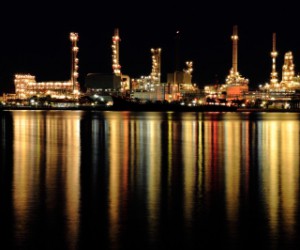Chris Bredenhann, PricewaterhouseCoopers' Africa oil and gas advisory leader, says: “The challenges facing oil and gas companies operating in Africa are diverse and numerous.
"Political interference, uncertainty and delays in passing laws, energy policies and regulations are stifling growth, development and investment in a number of countries around Africa.”
PwC’s ‘Africa Oil & Gas Review’ analyses what has happened in the last 12 months in the oil and gas industry and in the major African markets.
The survey draws upon the valuable experience and views of industry players in Africa, including international oil companies operating on the continent, national oil companies, service companies, independent oil organisations and industry commentators, to provide insight into the latest developments affecting the industry.
The review shows that the oil and gas industry in Africa is poised for momentous growth due to recent large gas finds in East Africa.
“Large gas finds in Mozambique and Tanzania, and oil potential in Uganda and Kenya, have sparked a flurry of exploration activity across Africa,” says Bredenhann.
Africa currently supplies about 12% of the world’s oil, boasting significant untapped reserves estimated at 8% of the world’s proven reserves.
The continent has natural gas reserves of 513 trillion cubic feet (Tcf) with 91% of the annual gas production of 7.1Tcf coming from Nigeria, Libya, Algeria and Egypt.
Developing the business
The major challenges identified by organisations in the oil and gas industry have remained largely unchanged with the top four issues in 2010 continuing to remain the biggest challenges in 2012.
Poor infrastructure and an uncertain regulatory framework were the two top challenges identified by the new emerging players/markets, particularly in Uganda, Ghana, Tanzania, Nigeria and Kenya.
“Governments around Africa are reviewing or developing their energy policies.
"Many countries are investigating changes in the government take, taxation regulations and state participation,” says Bredenhann.
The perception that corruption remains one of the most significant challenges remains.
Amendments to laws in some countries, such as Uganda and Tanzania, are intended to provide a more transparent process to reassure international investors that corruption is being addressed.
A lack of skills and localisation in fourth and fifth place indicate that people skills are a challenge for Exploration & Production (E&P) companies as they are required to comply with national participation and local content obligations contained in production sharing agreements and legislation.
Tax disputes still remain a concern for the business in the industry, as well as the training or recruitment of local talent at the levels required by legislation and government quotas.
Financing
Respondents indicated that their companies will largely be relying on their own cash flows to fund their own businesses over the next 12 months due to the lingering effects of the financial crisis.
Equity has also tended to become a preferred source of financing business operations.
The industry has become one of the biggest sectors for merger and acquisition activities in Africa.
Combating fraud and corruption
No less than 95% of organisations indicated that they have some anti-fraud and anti-corruption programmes in place.
Of these, only 55% believe that the programme is ‘very effective’ at preventing or detecting fraud and corruption.
Developing local skills and business
Given the trend towards local content, it was surprising that the percentage of the workforce made up of expatriates had increased from 10% to 25%.
This was partly due to a greater percentage of the respondents being from the new developing markets of Uganda, Ghana and Tanzania where there is a shortage of skills in the sector.
A quarter of respondents indicated that more than half of their workforce comprises expatriates, of which 35% were in senior and middle management positions and 25% specialist technical roles, such as drilling supervisors.
Only South Africa had expatriate figures below 10% in all categories.
Adds Bredenhann: “It is of concern that the total workforce has not transformed and that local content requirements have not been fully addressed.”
Sustaining growth
Oil and gas companies have identified uncertainty as a key constraint to sustaining growth.
Political intervention was described as an issue that restricted growth and delayed projects as well as the monetisation of assets.
Proposed changes to the Mineral and Petroleum Resource Development Act in South Africa will be of concern to E&P companies in the country as it could allow the Government to partially nationalise license blocks, states the report.
Bredenhann concludes: “While oil and gas companies would like to see a relaxation of local content regulations, governments are instead making regulations and policies more stringent.
"Investments in skills development and training are therefore an ongoing requirement.
“Strategic and long-term planning is important in today’s uncertain environment.
"Oil and gas companies must control costs while continuing to weigh up the risks and benefits of new projects, new products and evaluating how much capital to invest.”










